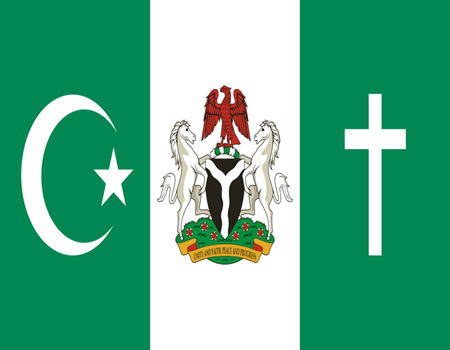More than before, the contemporary Nigerian society has been beset with religious conflicts that have threatened to tear the fabric of the country’s unity. To a large extent, one can say that the Nigeria of the past boasted of religious flexibility and tolerance for many years. However, recently, it seems to have been shelved as gruesome stories relating to religion rear their ugly heads frequently, causing loss of lives. One can say that a curious feature of today’s Nigerian society is religious intolerance.
Religious fanaticism has been hidebound and has spread unbridled. Religious violence has been unleashed on many innocent citizens that one wonders if Nigeria is truly a secular country which gives room for religious freedom. There is palpable apprehension among the citizens due to insurgencies in different parts of the Northern region.
Religious intolerance usually originates from the perceived superiority of one religion over the others. In simple terms, religious intolerance or fanaticism is the inability of an adherent of a particular religion to acknowledge, accommodate and accept the right of others to live by another faith different from his own. Invariably, such attitude is connected to the conviction that one’s religion is the only divinely ordained path to spiritual enlightenment and immorality in heaven. Consequently, a religious fanatic believes strongly that his religion is unquestionably superior to other religions.
It is good to point out that being zealous for one’s religion is commendable and is to be expected, but where such zeal is wrongly channeled, it becomes dangerous for the life of the community and it is an abuse of human rights. There is no disputing the fact that the problem of religious violence casts a serious doubt on the stability order of the country. This is because without doubt, the country has recorded very bizarre experience in the domain of religious violence.
The high rate of killings due to religious intolerance in many parts of the country is worrisome. Nigeria, like many other countries, is a secular country going by her constitution. The multiple religions in the country give every citizen the right opportunity to choose which faith is convenient. Therefore, freedom of faith must be defended at all cost, even when those in authority are not convenient with it.
Religious intolerance poses a great threat to human rights. Human rights apply to all irrespective of color, gender, sex, religion, health status, dress, socio-economic status, etc. This threat is not simply because of the specific acts of fundamentalist groups which may be recognized as concrete violations of human rights standards; the real threat comes from the political aims or the political project that is at the heart of fundamentalisms, which is essentially to transform the way identities are ascribed and negotiated.
Ademola Orunbon,
orunbonibrahimademola@gmail.com






